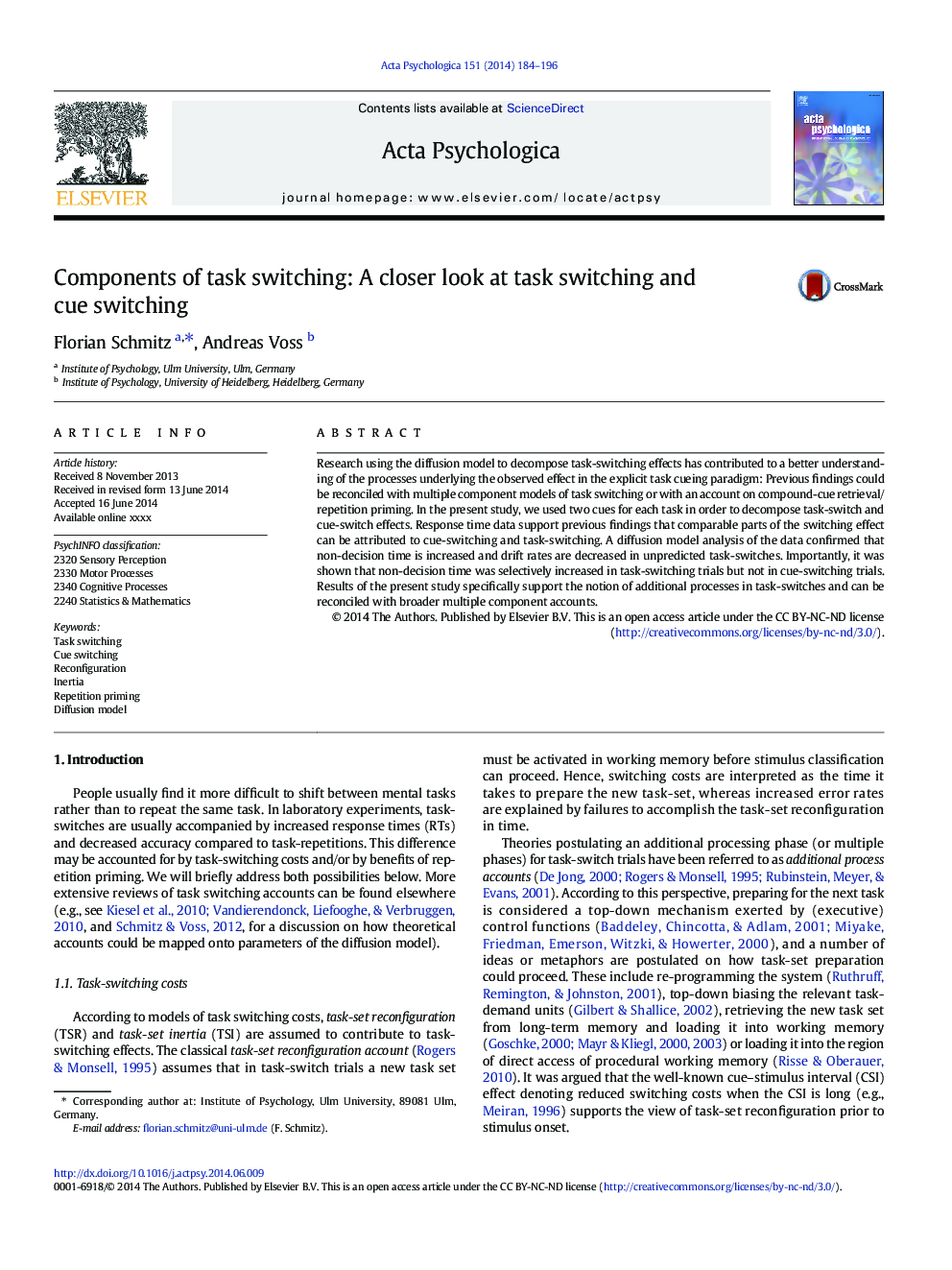| Article ID | Journal | Published Year | Pages | File Type |
|---|---|---|---|---|
| 7277589 | Acta Psychologica | 2014 | 13 Pages |
Abstract
Research using the diffusion model to decompose task-switching effects has contributed to a better understanding of the processes underlying the observed effect in the explicit task cueing paradigm: Previous findings could be reconciled with multiple component models of task switching or with an account on compound-cue retrieval/repetition priming. In the present study, we used two cues for each task in order to decompose task-switch and cue-switch effects. Response time data support previous findings that comparable parts of the switching effect can be attributed to cue-switching and task-switching. A diffusion model analysis of the data confirmed that non-decision time is increased and drift rates are decreased in unpredicted task-switches. Importantly, it was shown that non-decision time was selectively increased in task-switching trials but not in cue-switching trials. Results of the present study specifically support the notion of additional processes in task-switches and can be reconciled with broader multiple component accounts.
Keywords
Related Topics
Life Sciences
Neuroscience
Cognitive Neuroscience
Authors
Florian Schmitz, Andreas Voss,
